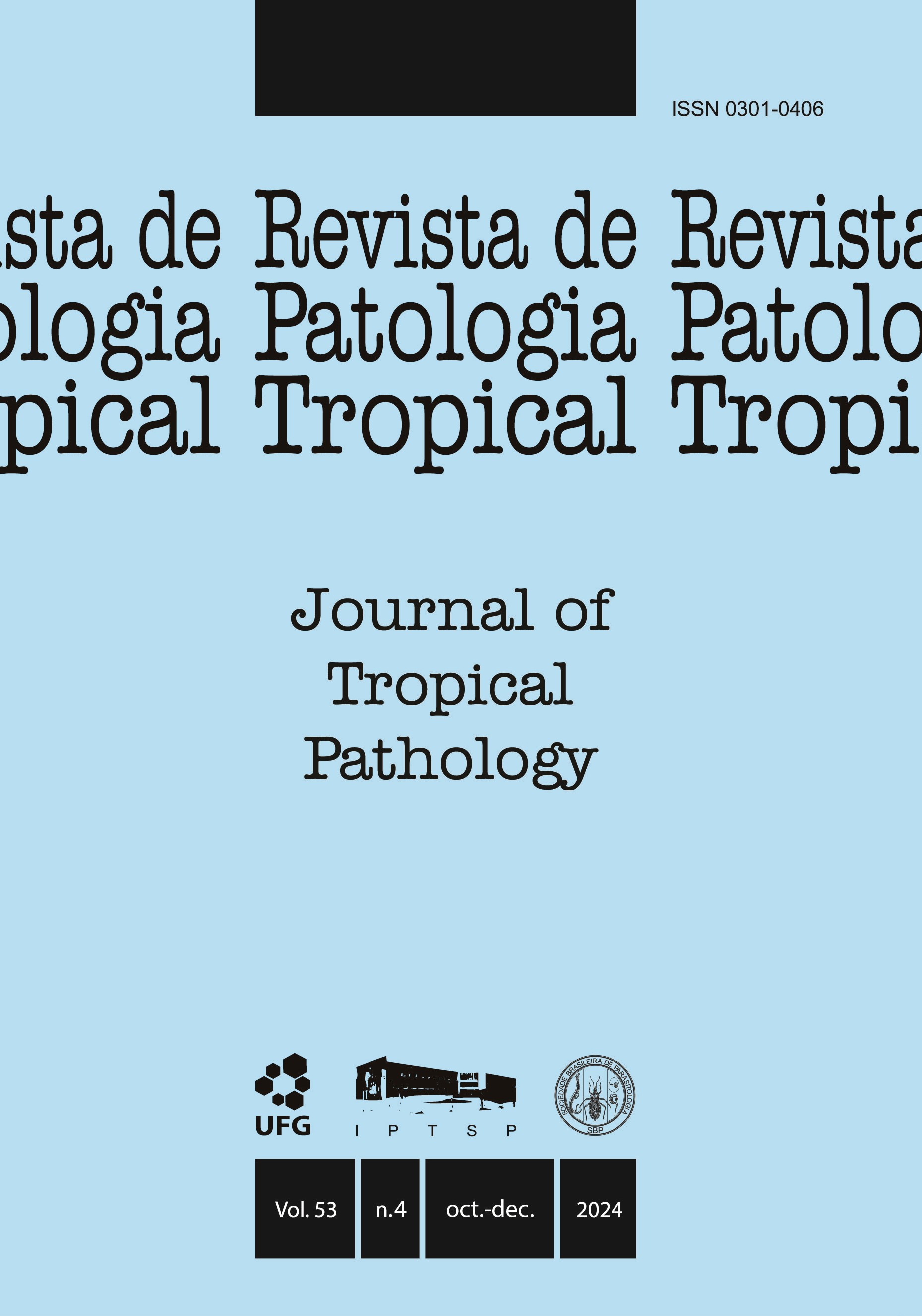Preliminary results of phage display method to produce recombinant anti-schistosoma mansoni antibodies
DOI:
https://doi.org/10.5216/rpt.v53i4.76874Abstract
Schistosomiasis is a parasitic disease caused by trematodes of the genus Schistosoma. It is a neglected tropical disease, in which almost 240 million people are infected worldwide and about 700 million are at risk of acquiring the infection. The transmission has been reported in 78 countries. An accurate diagnosis of schistosomiasis is essential for treatment and disease control programs. However, diagnostic techniques may have some sensitivity limitations, especially in mild infections, with low egg elimination rates. Therefore, the present study aims to select recombinant antibodies against Schistosoma mansoni antigens to be applied in the serodiagnosis of schistosomiasis in the future. Adult parasites of S. mansoni were extracted by perfusion of the liver of infected mice. The recombinant antibody methodology was based on Phage Display, involving 3 rounds of selection by Biopanning. The visualization of the antigen-antibody binding was performed through Indirect ELISA test. The first two selection rounds of Biopanning showed positive values for the presence of phages, but the third cycle did not generate a significant amount of phage particles. For the indirect ELISA test, 15 male and 15 female clones were selected. It was observed that most of the antibodies reacted similarly to both male and female antigens. This work has provided valuable information that could be useful for the development of diagnostic technologies for Schistosomiasis.
KEY WORDS: Schistosomiasis; Schistosoma mansoni; antibodies; bioprospecting
Downloads
Downloads
Published
How to Cite
Issue
Section
License
The manuscript submission must be accompanied by a letter signed by all authors stating the full name and email address, confirming that the material has not been published or is under consideration for publication elsewhere, and agreeing to transfer copyright in all media and formats for Journal of Tropical Pathology. The authors will not be paid for published articles. They are solely responsible for the content of those articles, even if the Editor holds the right to adjust them to the norms of the journal.
The reviewers will not be paid for the peer review process.

